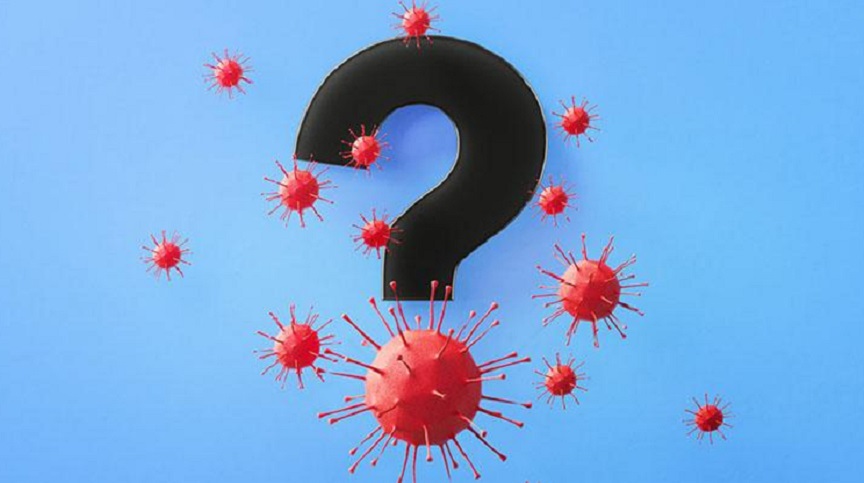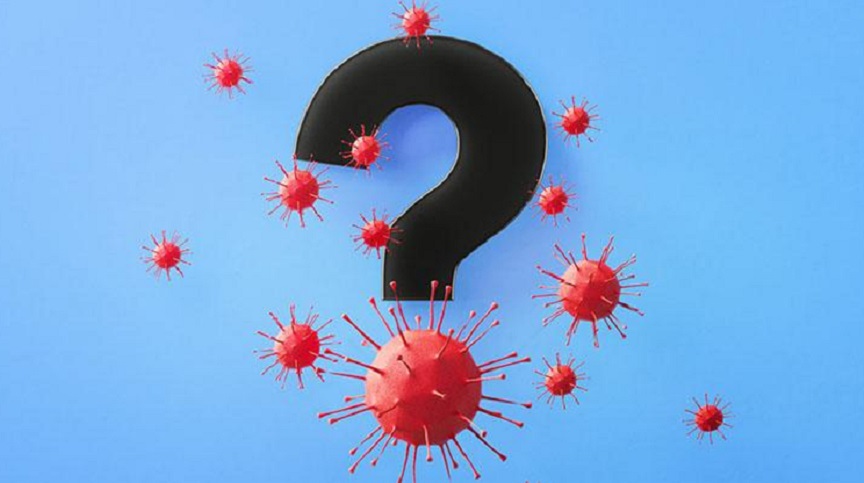They should meet these three criteria before you even think about hanging out again.

As COVID-19 continues to spread across the US, the odds are increasing that you’ll know at least one person who’s had the virus—and if they’re in your inner circle, it raises a huge question: When is it safe to be around someone who has had COVID-19?
First, a quick refresher: COVID-19 passes from person to person mainly through respiratory droplets and airborne particles—so when someone coughs, sneezes, talks, or even sings in close range to someone else, the other person risks being infected with the virus. From there, an infected person may or may not develop symptoms. Many people with coronavirus can expect to develop symptoms within 11-1/2 days, although the incubation period ranges from 3 to 14 days. Depending on the severity of the illness, it can take at a week or two to recover from mild illness, or more than six weeks for more serious cases that may require hospitalization. The long-term effects of the disease may linger for weeks or months.
According to the Centers for Disease Control and Prevention, knowing when it’s safe to be around someone who recently had COVID-19 depends a lot on symptoms—particularly the absence of them. While every situation is different—and the CDC recognizes this—the agency says it’s safe for those who have had COVID-19 to be around others when they can meet all three criteria:
- It’s been 10 days since their symptoms started.
- They haven’t had a fever (without taking any fever-reducing medication) for at least 24 hours.
- Their symptoms (like a cough and shortness of breath) have improved.
It’s important to remember, however, that people who recover from COVID-19 can still have some lingering symptoms, like difficulty breathing, fatigue, or a persistent cough or headache, William Schaffner, MD, an infectious disease specialist and professor at the Vanderbilt University School of Medicine, tells Health. “That doesn’t mean they’re contagious,” he says. “Some people just take longer to restore themselves to physical wellbeing.”
In other cases, if a person tested positive for COVID-19 but didn’t have symptoms, the CDC says that person can be around other people after 10 days have passed since taking the test. Anyone who has a weakened immune system, however, may need to stay home longer then 10 days.
For those who’ve had close contact with a person who has COVID-19, the CDC recommends staying home for 14 days after that exposure. (That’s based on the incubation period for the illness: it can take up to two weeks from exposure to symptom onset, says CDC.) However, the CDC recently acknowledged that a two-week quarantine period can pose an economic hardship on people and therefore added two new quarantine options. People who might have been exposed to COVID-19 but haven’t developed symptoms can end their quarantine after 10 days, or after 7 days if they test negative for the virus.
The CDC’s recommendations for being around others apply to all kinds of contact. Even close contact like hugging or kissing (as long as people meet the CDC’s criteria for being symptom-free for the specified period of time) is “generally considered OK,” Amesh A. Adalja, MD, senior scholar at the Johns Hopkins Center for Health Security, tells Health. “You don’t necessarily have to change your behavior, as long as they pass out of that infectious period,” he says.
Just a reminder, though: You still need to wear a mask and practice social distancing as much as possible when you’re out in public—being previously infected with COVID-19 doesn’t necessarily give you a free pass to disobey current recommendations, epidemiologist Supriya Narasimhan, MD, division chief of infectious diseases and medical director of infection prevention at Santa Clara Valley Medical Center, in California, previously told Health. “It’s important that all of us—including those who have recovered from COVID-19—maintain these safety precautions until we stop the spread of this pandemic,” he said.
When someone is finally feeling well enough to start being around people again, it’s also important to consider their comfort levels about being in public—and yours about being around them. That’s why it’s a good idea to at least have a conversation about your comfort levels in advance, Dr. Shaffner says.
“Some people are going to be a little extra careful for a while, and there is nothing wrong with that as long as the former patient knows that you’re being a little extra careful,” he says. “Have those conversations so that that the patient, who has probably been feeling pretty well for a while, doesn’t rush out when the clock runs out and wants to give everyone a hug.”
The information in this story is accurate as of press time. However, as the situation surrounding COVID-19 continues to evolve, it’s possible that some data have changed since publication. While Health is trying to keep our stories as up-to-date as possible, we also encourage readers to stay informed on news and recommendations for their own communities by using the CDC, WHO, and their local public health department as resources.
Source: Health
Balkantimes.press
Napomena o autorskim pravima: Dozvoljeno preuzimanje sadržaja isključivo uz navođenje linka prema stranici našeg portala sa koje je sadržaj preuzet. Stavovi izraženi u ovom tekstu autorovi su i ne odražavaju nužno uredničku politiku The Balkantimes Press.
Copyright Notice: It is allowed to download the content only by providing a link to the page of our portal from which the content was downloaded. The views expressed in this text are those of the authors and do not necessarily reflect the editorial policies of The Balkantimes Press.

